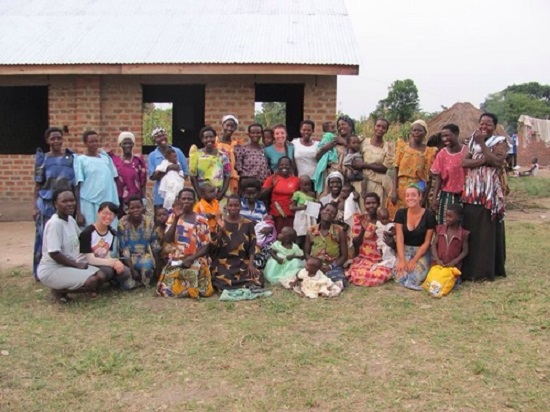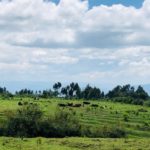How Women in Uganda are Second-Class Citizens

When the heat of the sun’s rays begged my eyelids to open that first morning on the southern plains of Uganda, I awoke startled at the emotions I felt. The reality of the children and women overwhelmed me. The smiles that surrounded me emitted peace. I was surprised by the cheerfulness behind those pearly white teeth. But the words that escaped from behind their brightness contradicted the aura of happiness. Their troubles ran deep, and possessed no simplicity in cause nor resolution. Images from infomercials, textbooks, clichés, and movies blended together in my cluttered thoughts as I tried to make sense of it all.
The knowledge I had accumulated throughout my youth was filtered through superficiality and selfishness. The pain in the words I heard was perhaps more grave than I could comprehend. I never felt so helpless or naïve as in those days I spent in Bandali Village.
The days passed slowly and solemnly teaching me lessons I could never obtain from a classroom. I tried with all my might to refrain from judgment about what I saw as gender inequality in Uganda. I tried to accept cultural norms and take each at face value. In fact, I respected the sanctity of the lifestyles sustained by the locals. However, despite my mindfulness, I found myself battling my own morality. I wondered how women could endure such hardships and still smile. It seemed that the culture so warm in nature could be so cold towards one half of its occupants.
How Women in Uganda are Second-Class Citizens.
I was determined to uncover a worthy rationale for this gender inequality in Uganda. Conversing with men only contributed to my confusion. I came to realize that my presence was not as useful as I had hoped. I recognized immediately that one month was barely enough time to scratch the surface of understanding. My attempts at ameliorating anything were moot because I was simply an ignorant intruder in a complex society.
Every “Mzungu,” I received by a passerby instilled a further sense of complacency in me. I could not fathom how to be more than just a mzungu with an outside perspective. I was unable to determine whose ideals were more just while objectively analyzing each aspect of their customs. Many influences have come and gone in Uganda; yet gender remains prominent. The lines were drawn and the distinction was abundantly clear. Men are superior in strength, intelligence, marriage, health and in rights. Their value far exceeds the worth of any woman, and this perspective was daunting.
I felt sorrow for the aching hearts of women who don’t have the freedom to marry for love or choose to start a family when they are mentally and physically ready for one. Some women had accepted a shared marriage as a second or third wife. Some could not read or write but longed to. Women often could not protect themselves from disease or properly treat it if they contracted one.
Despite all of that, I witnessed hope and beauty in the faces of the women I grew to love. I came to know what life is at its purest, without the fog of money and modernity.
I refrained from voicing my opinions about gender inequality in Uganda. The experience became more of an observance, and forced me to reflect inward. The more I reflected, the more lost I became. I scrounged for some semblance of something to offer the women I encountered. In the end all I could give was advice, personal experiences, information that most already knew, English, and alternative possibilities.
I refrained from voicing my opinions about gender inequality in Uganda.
I began to contemplate hypothetical scenarios where I had influence and substantial funds, and therefore the ability to implement relevant projects to those who were in dire need of them. But I had neither the financial capability nor the skills to make a difference. I only had my thoughts and the desire to help, which were tangled up with misguided notions I had been raised with. My intentions are no different than many others’ in a history of subtle violence that oppresses an enormous mass of the world’s population.
I still don’t know how to intervene, but I can see no greater purpose than to attempt to minimize gender inequality in Uganda and all over the world. Even if the cycle perpetuates itself around me, and my name gets lost with the millions before mine on the same path, I cannot turn back. I have already seen the struggle of too many women whose voices go unheard. I will always fight for those strong souls whom by sheer chance were dealt a negative hand. In fact, I will not know peace until it can be equally shared with those who deserve it. I left a part of my heart in the grasslands near the mouth of the Nile and I won’t rest until it is reunited with the women who showed me what hope is.
Photo by Anna French.








